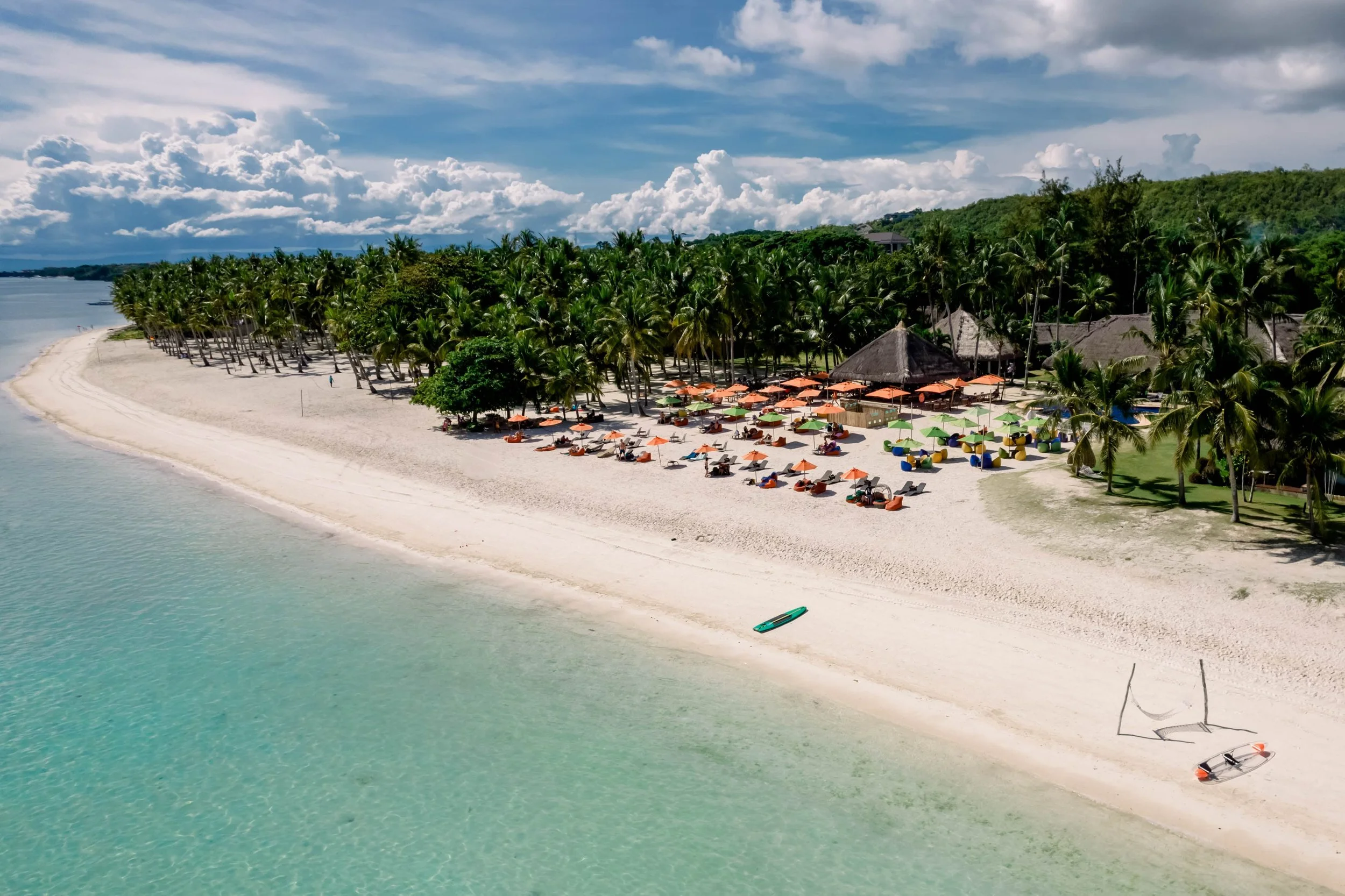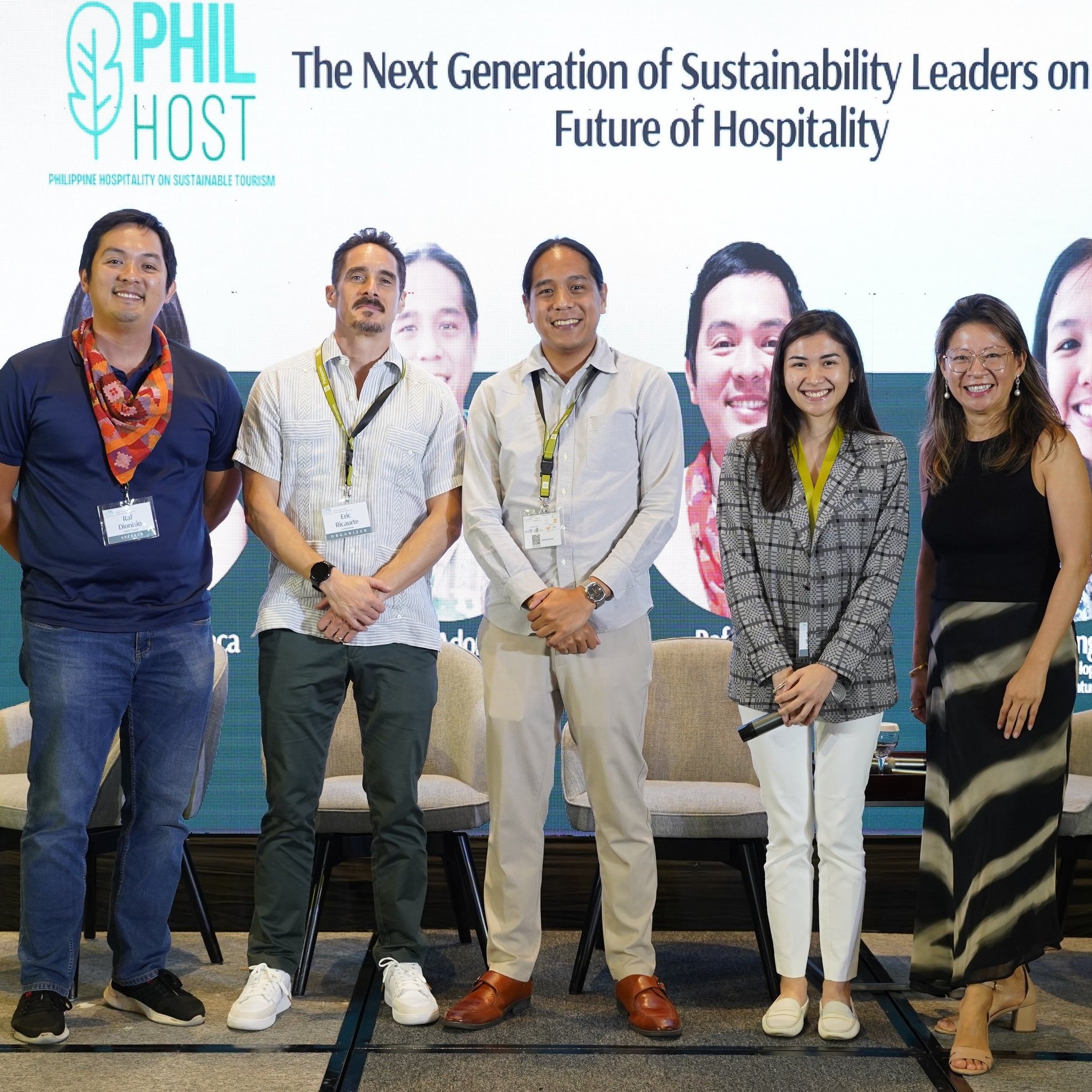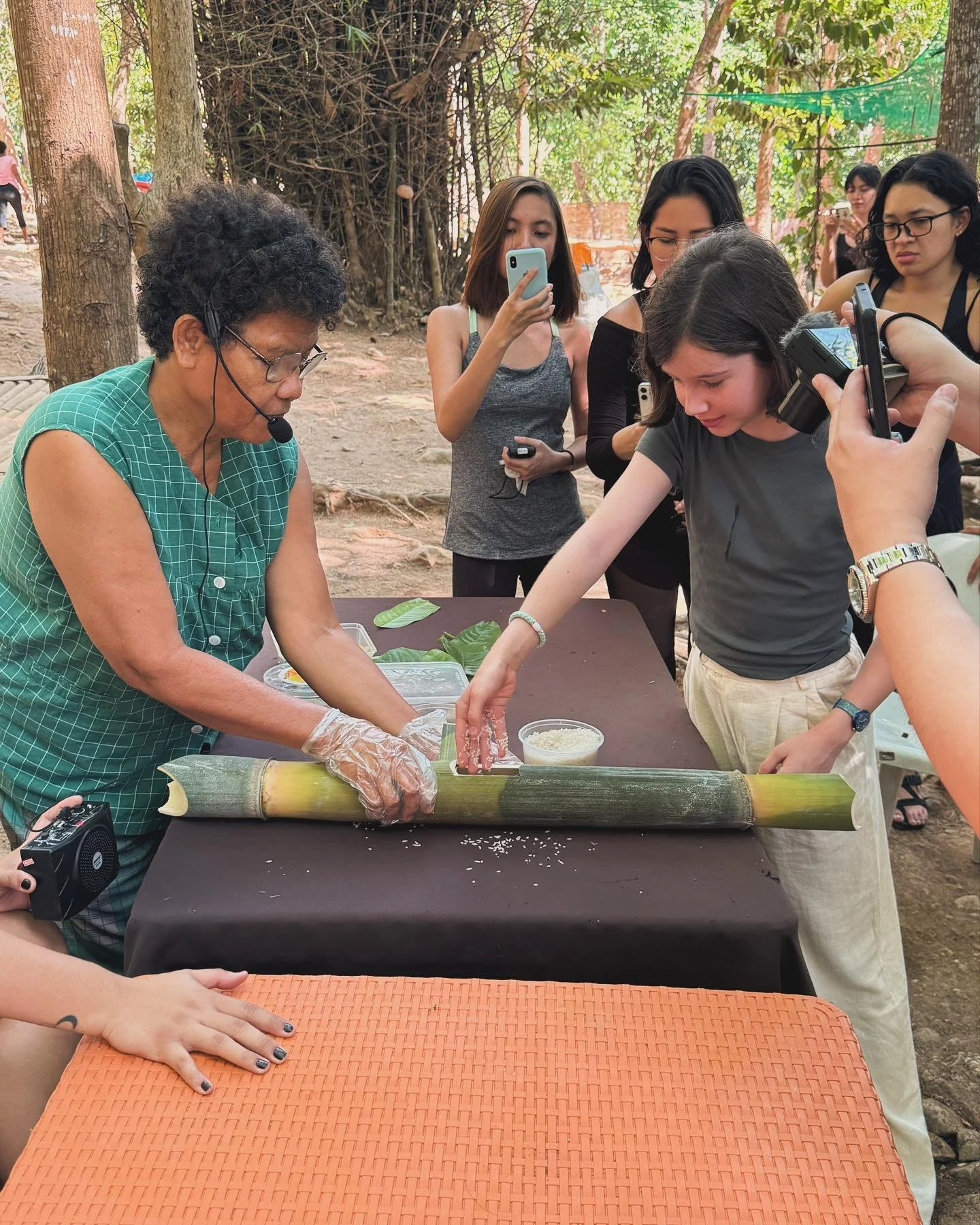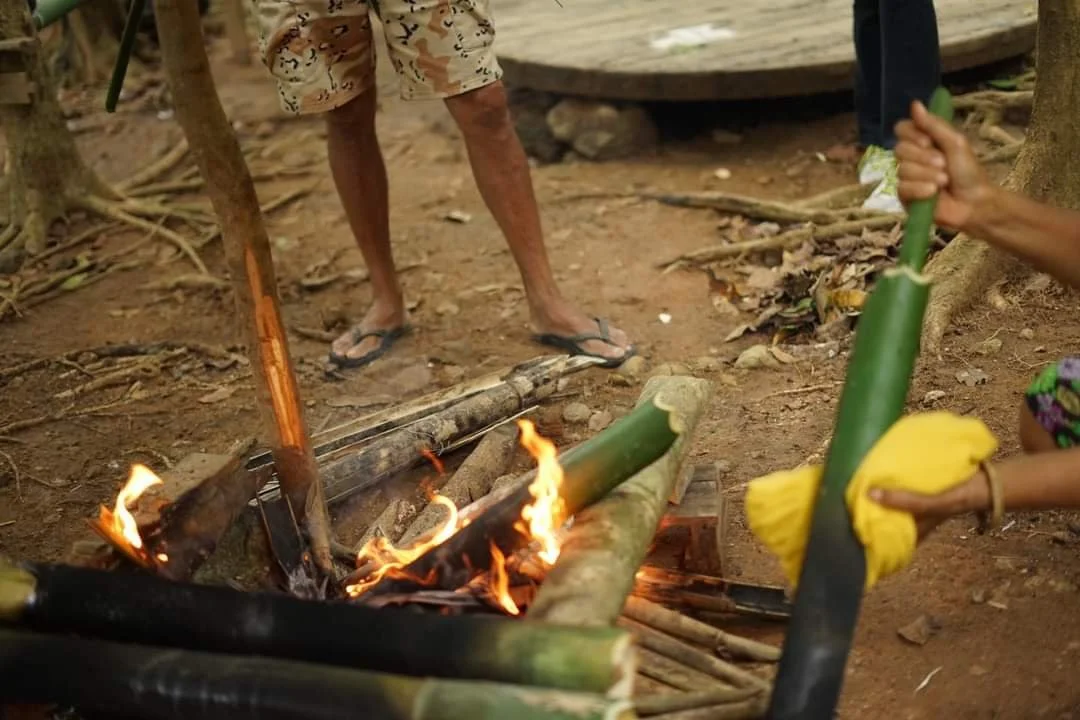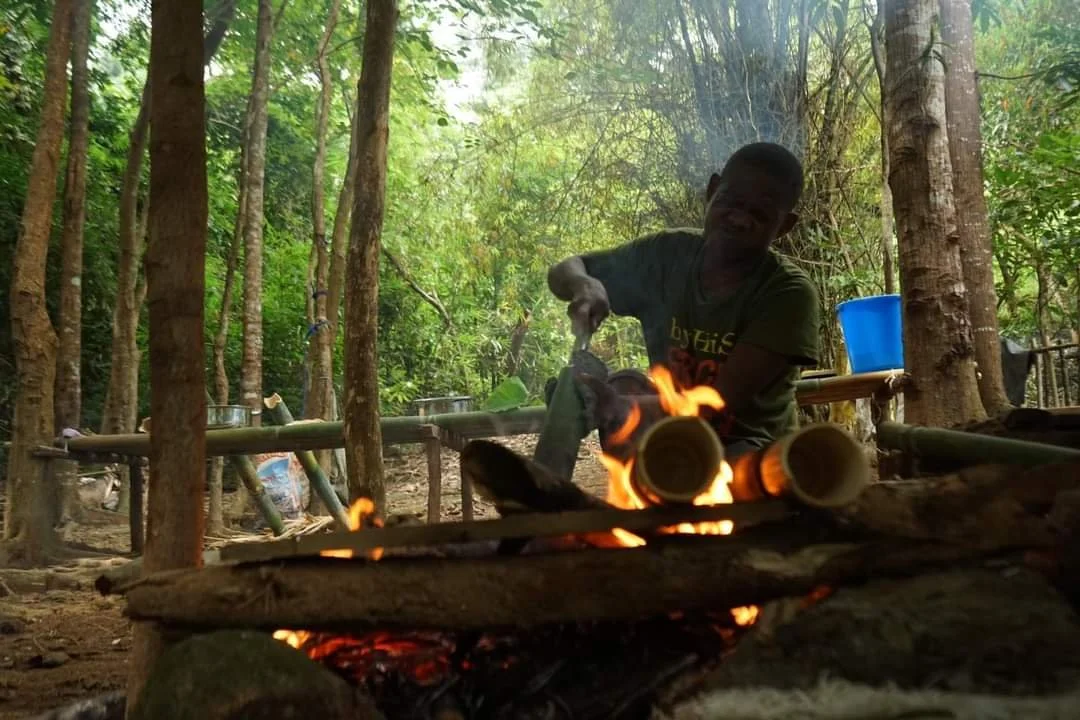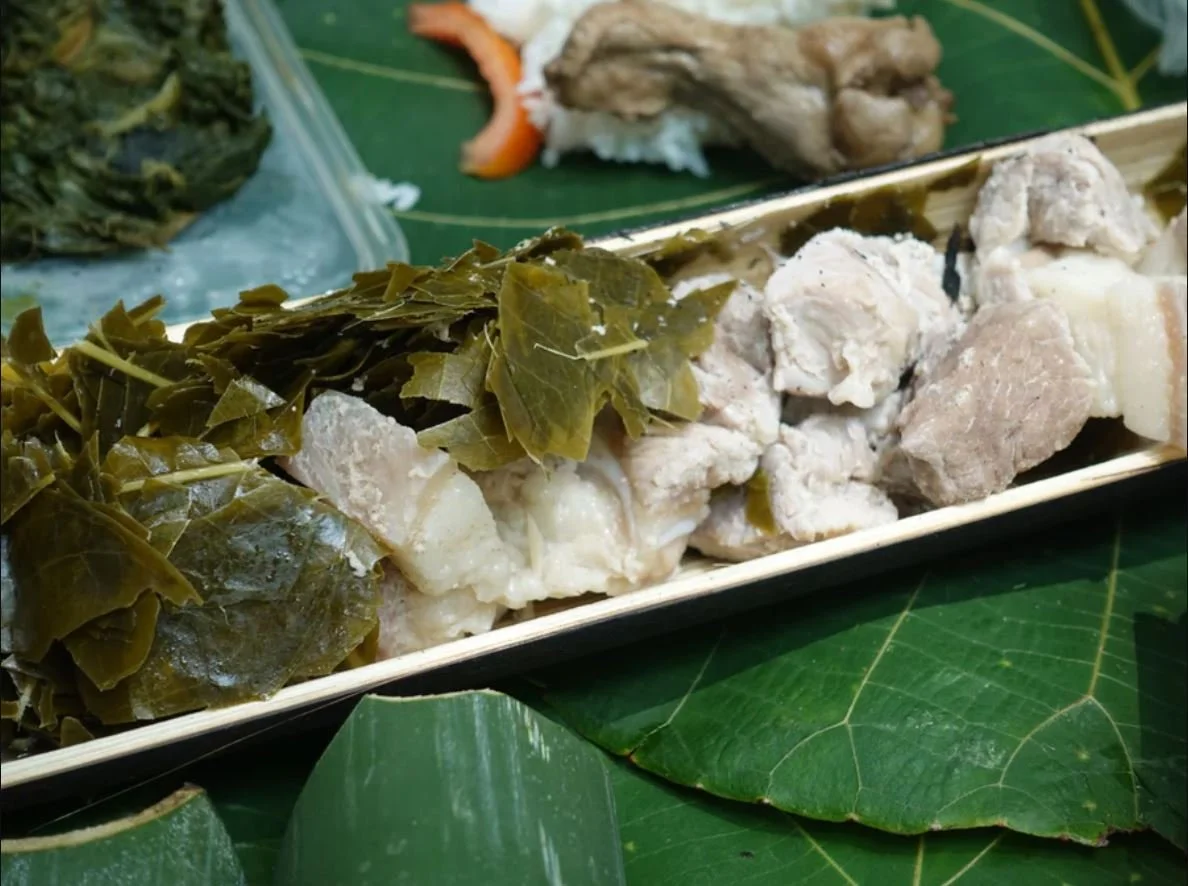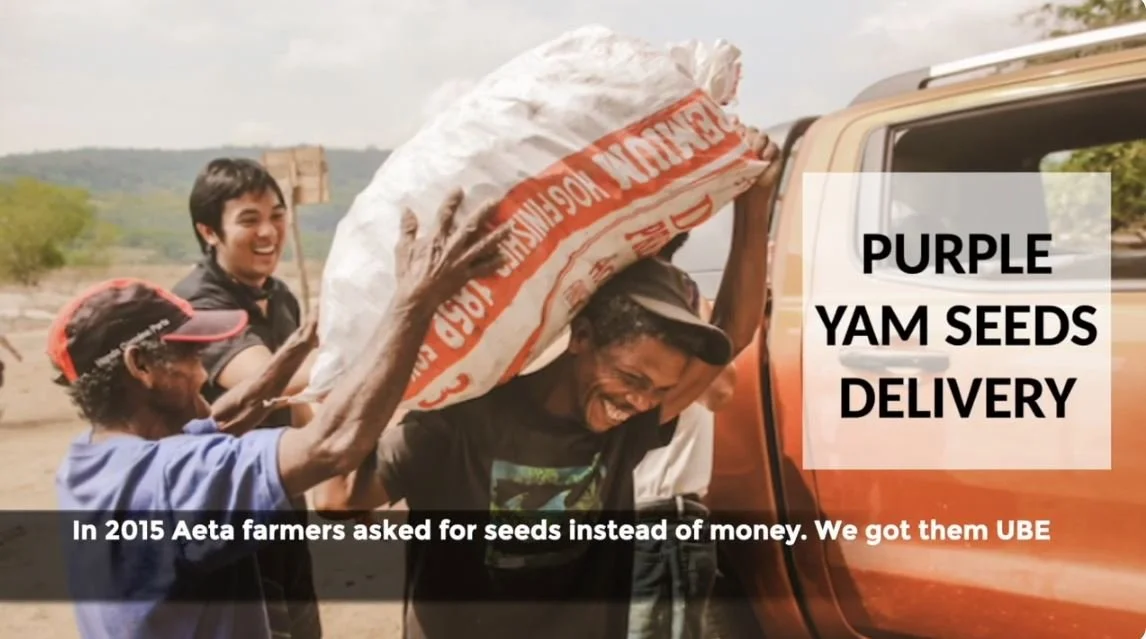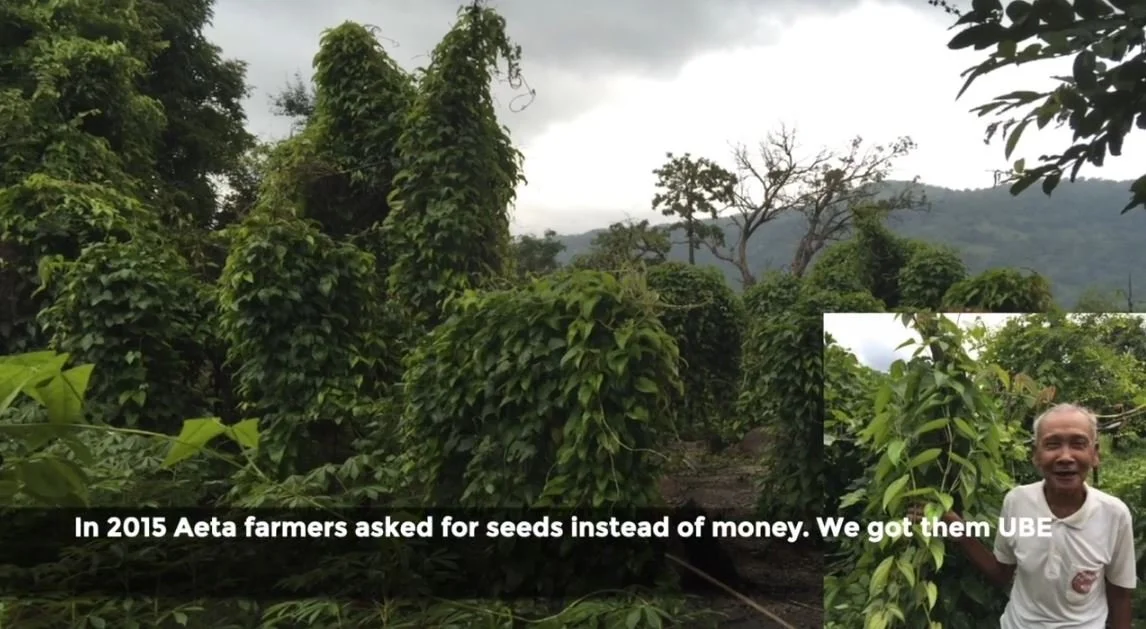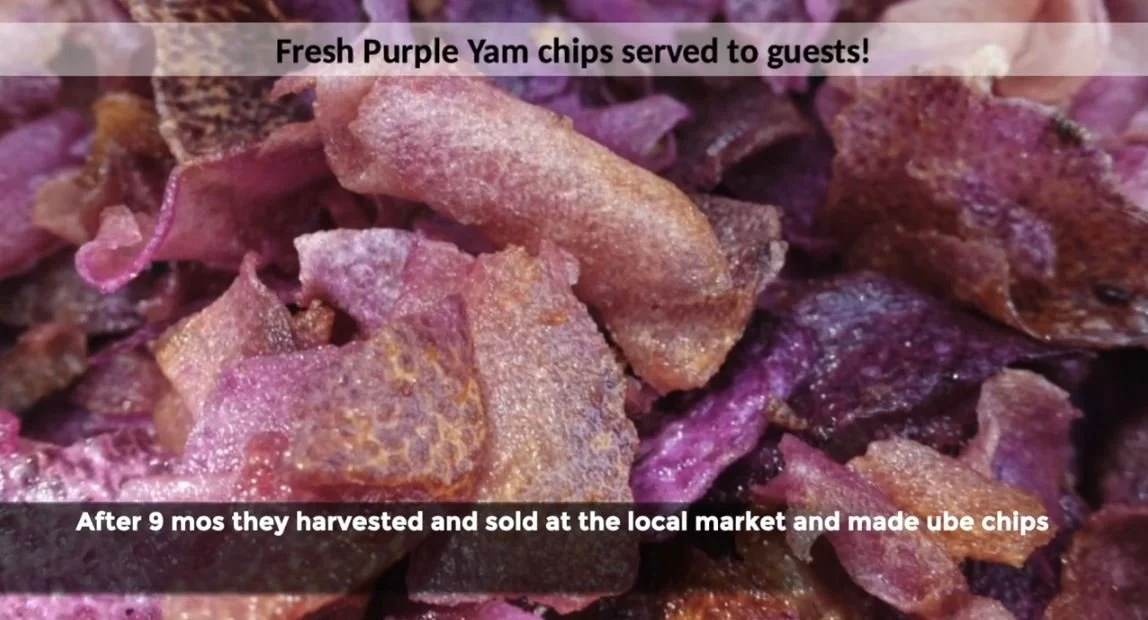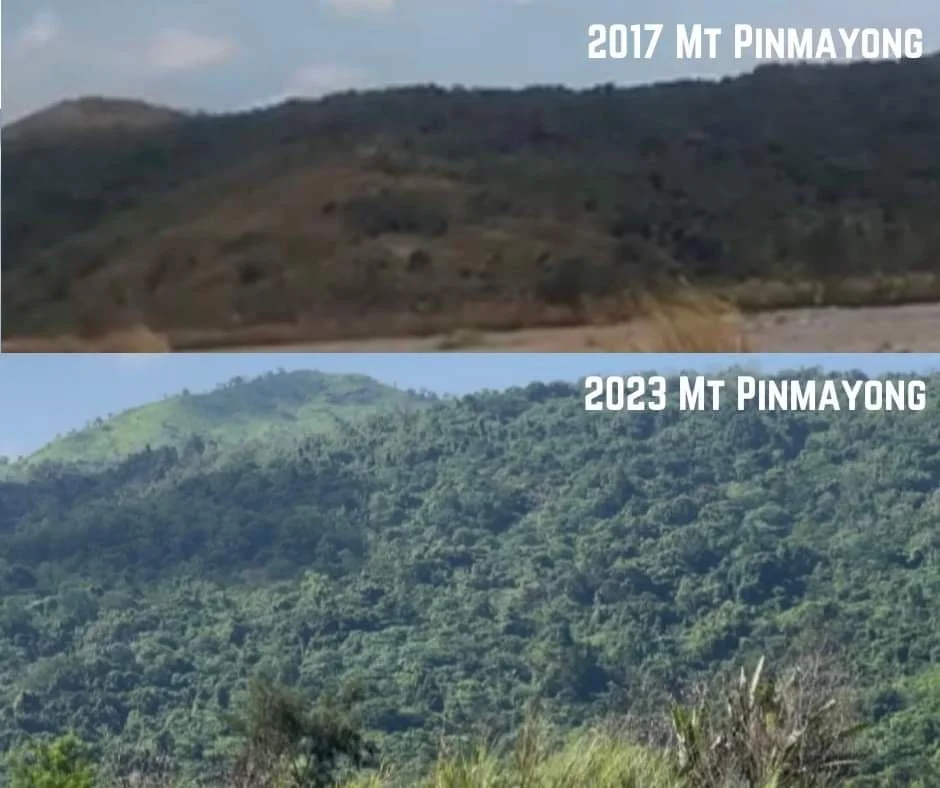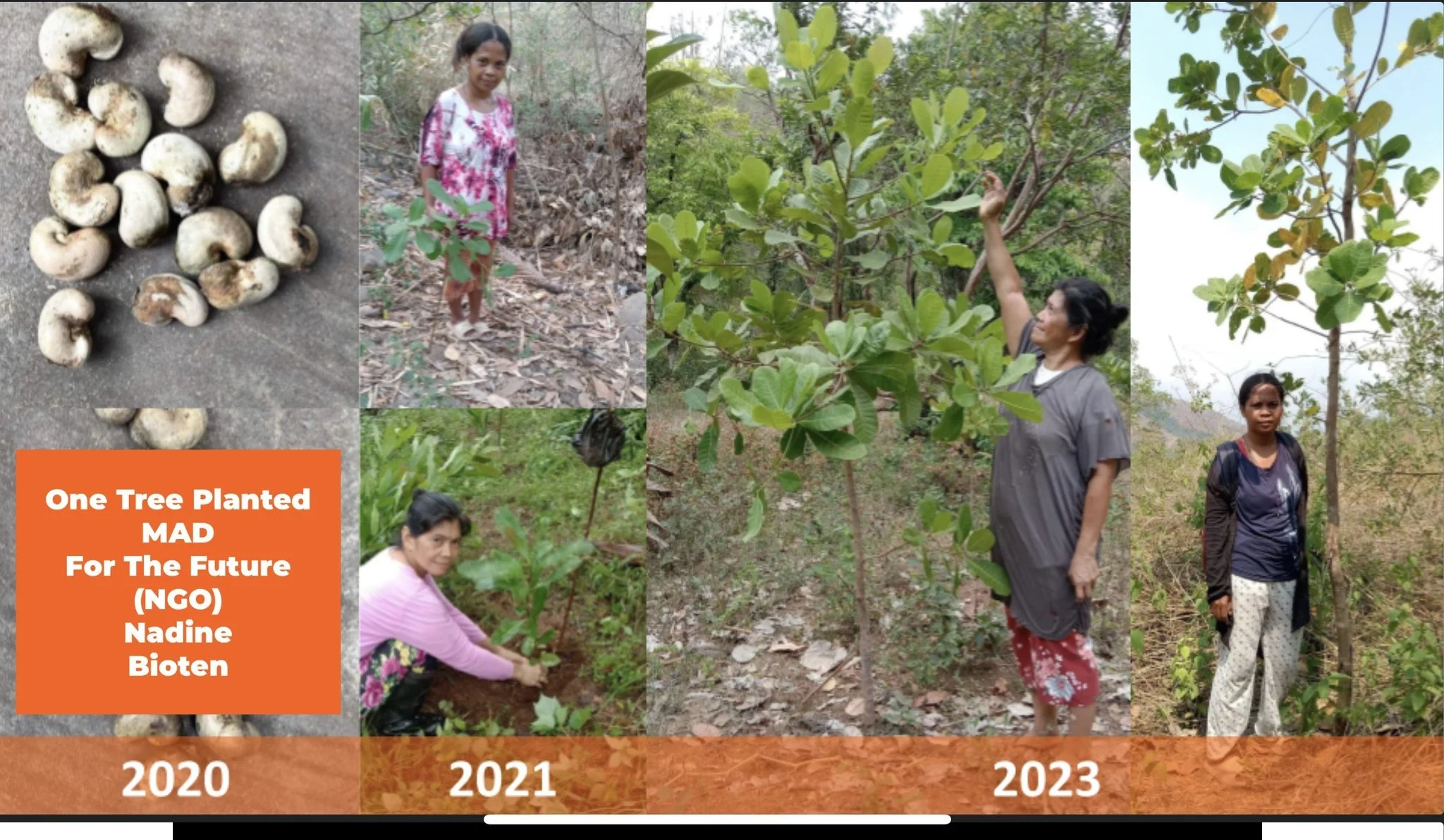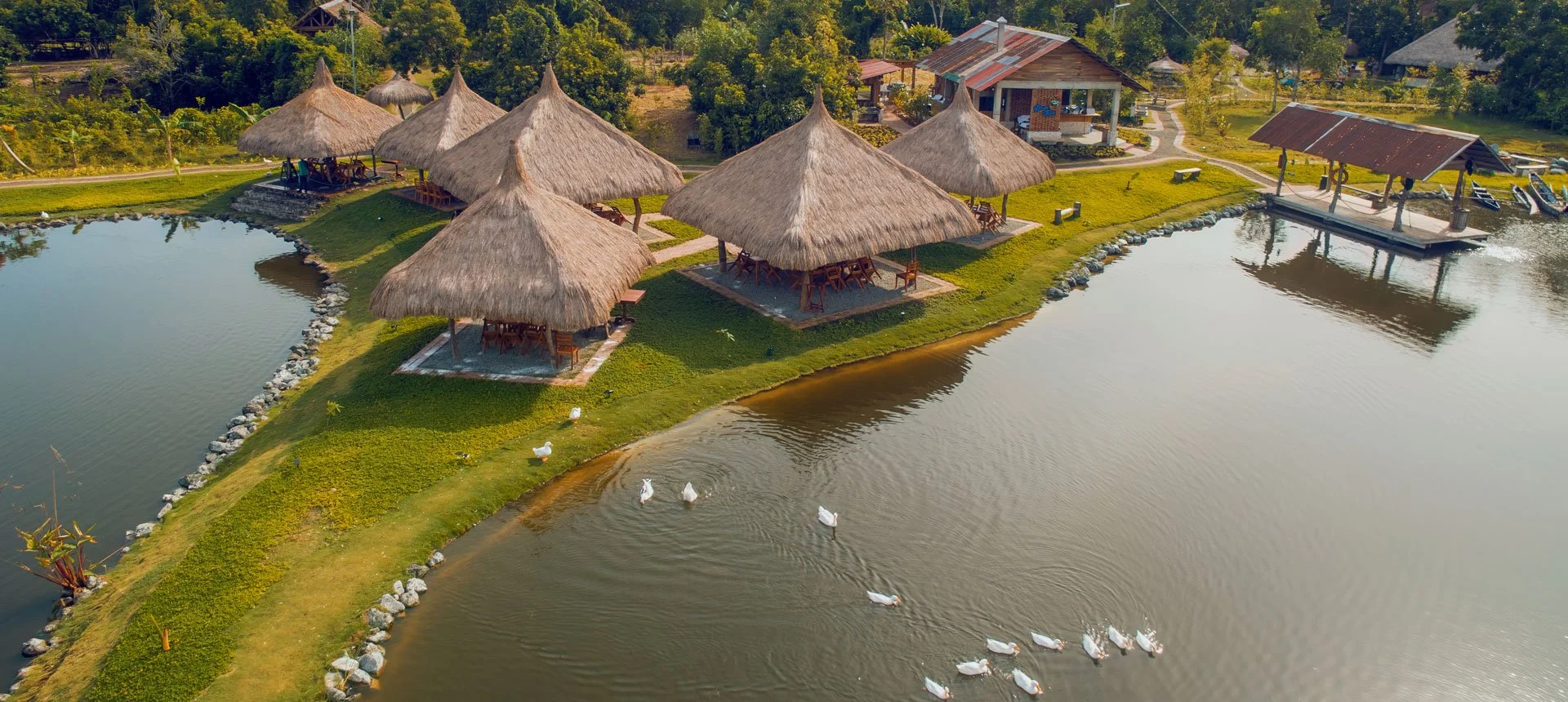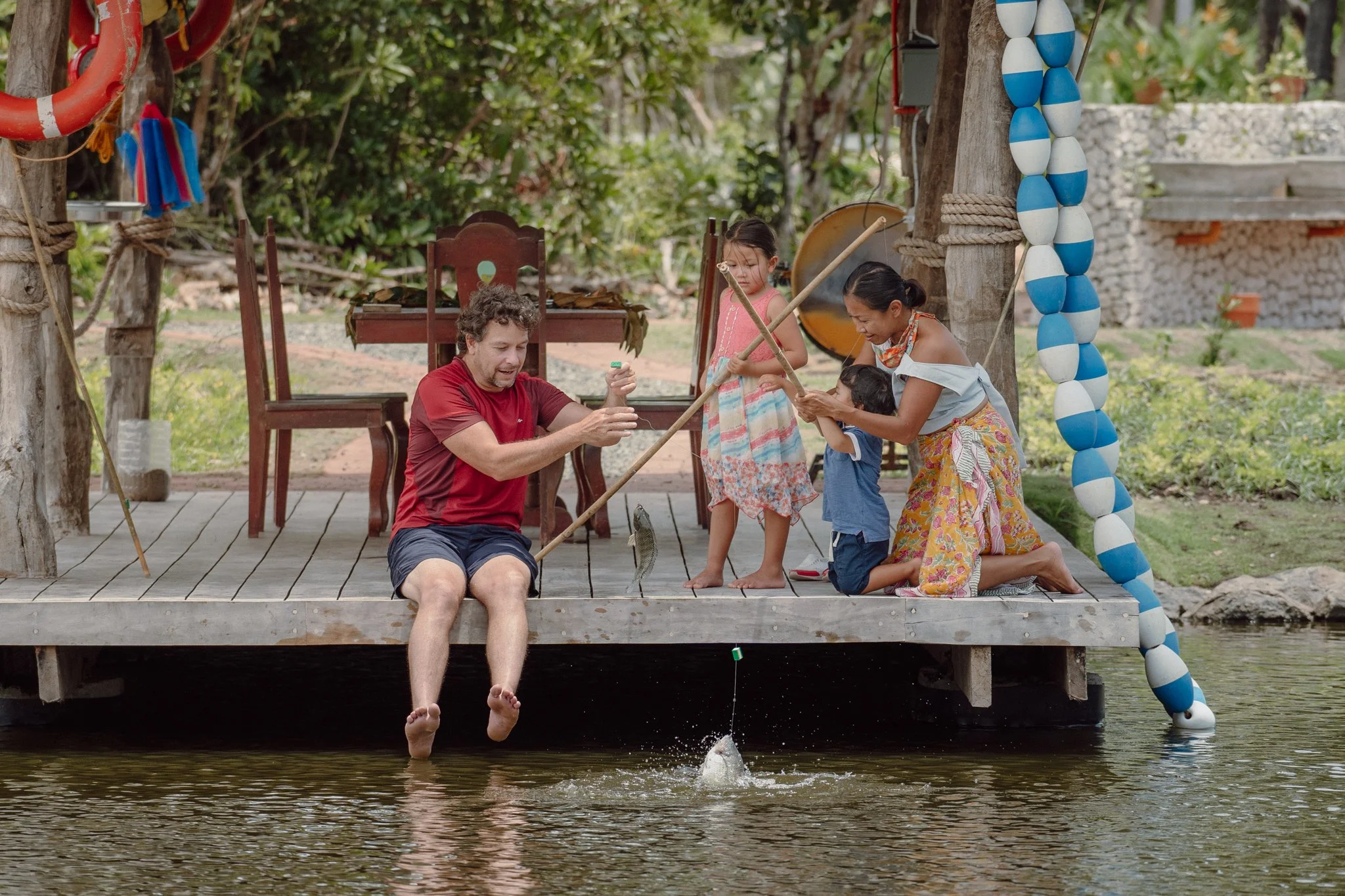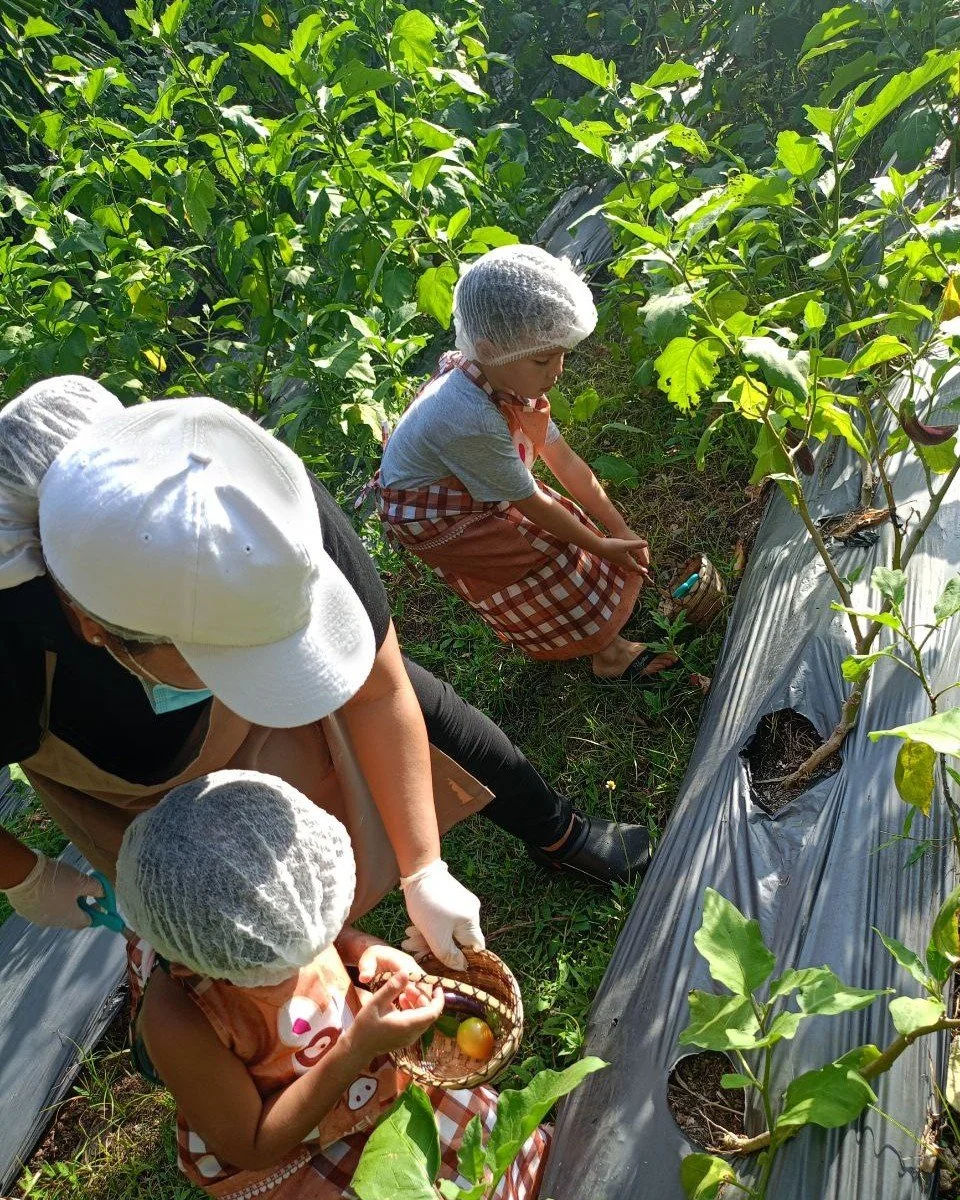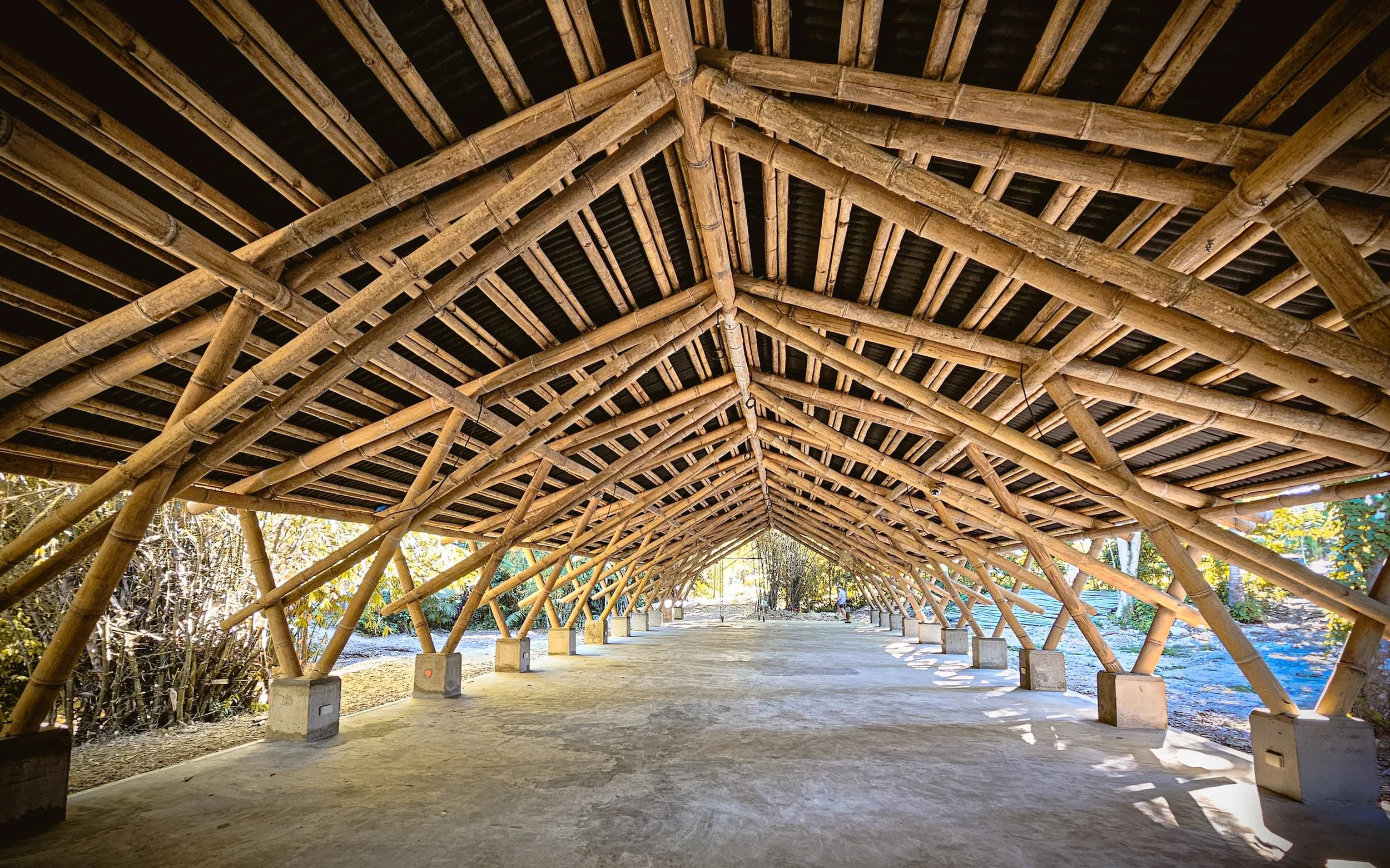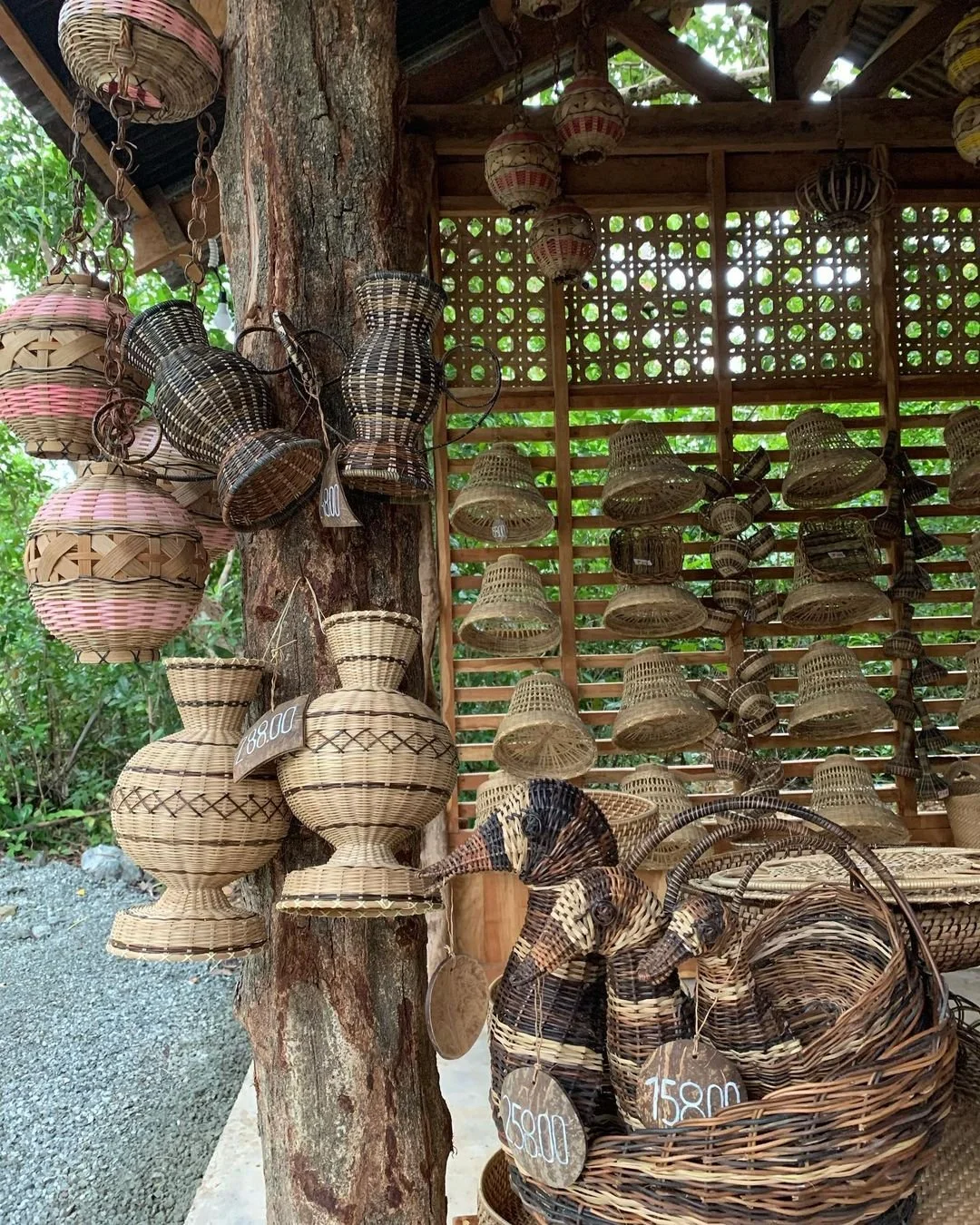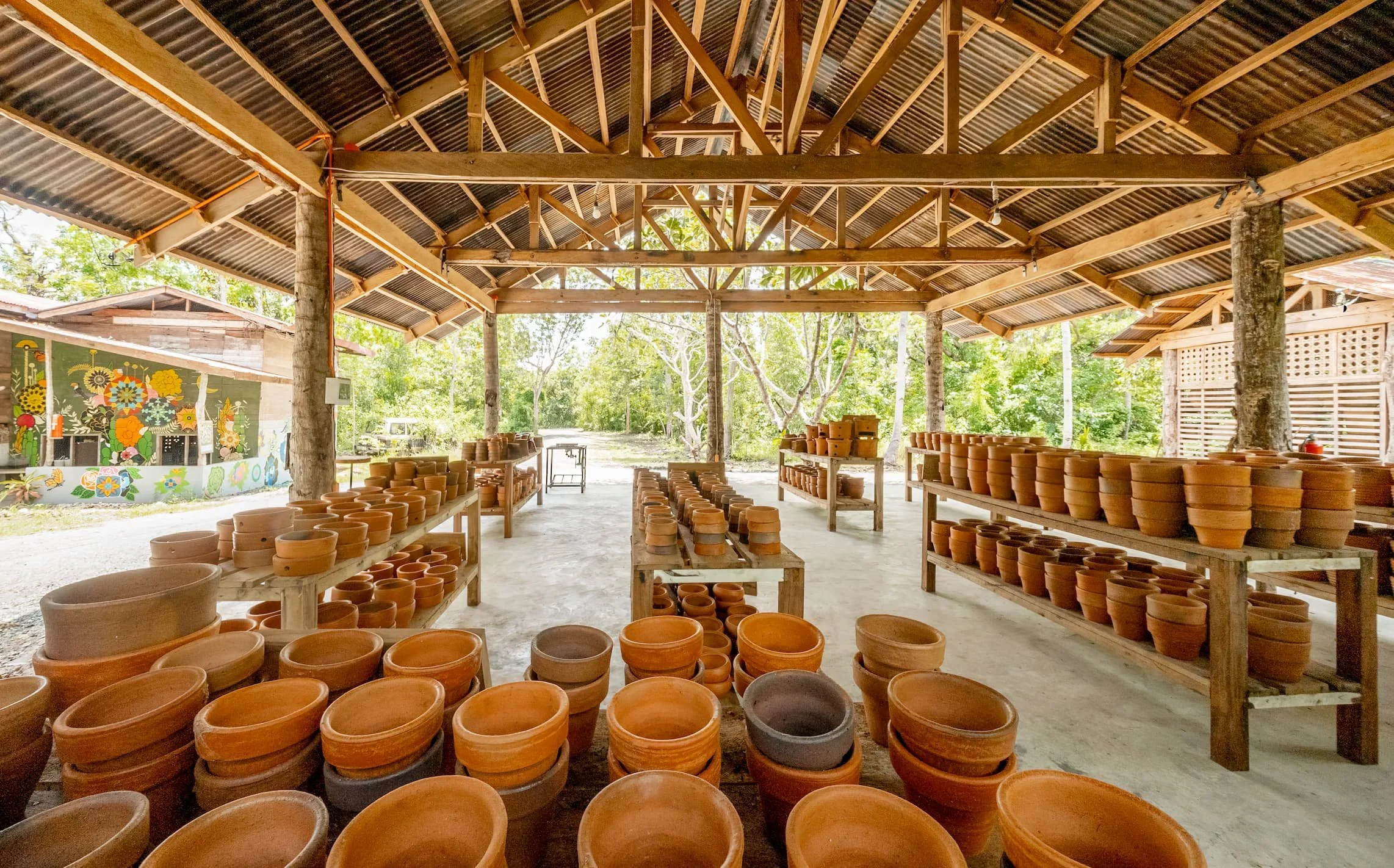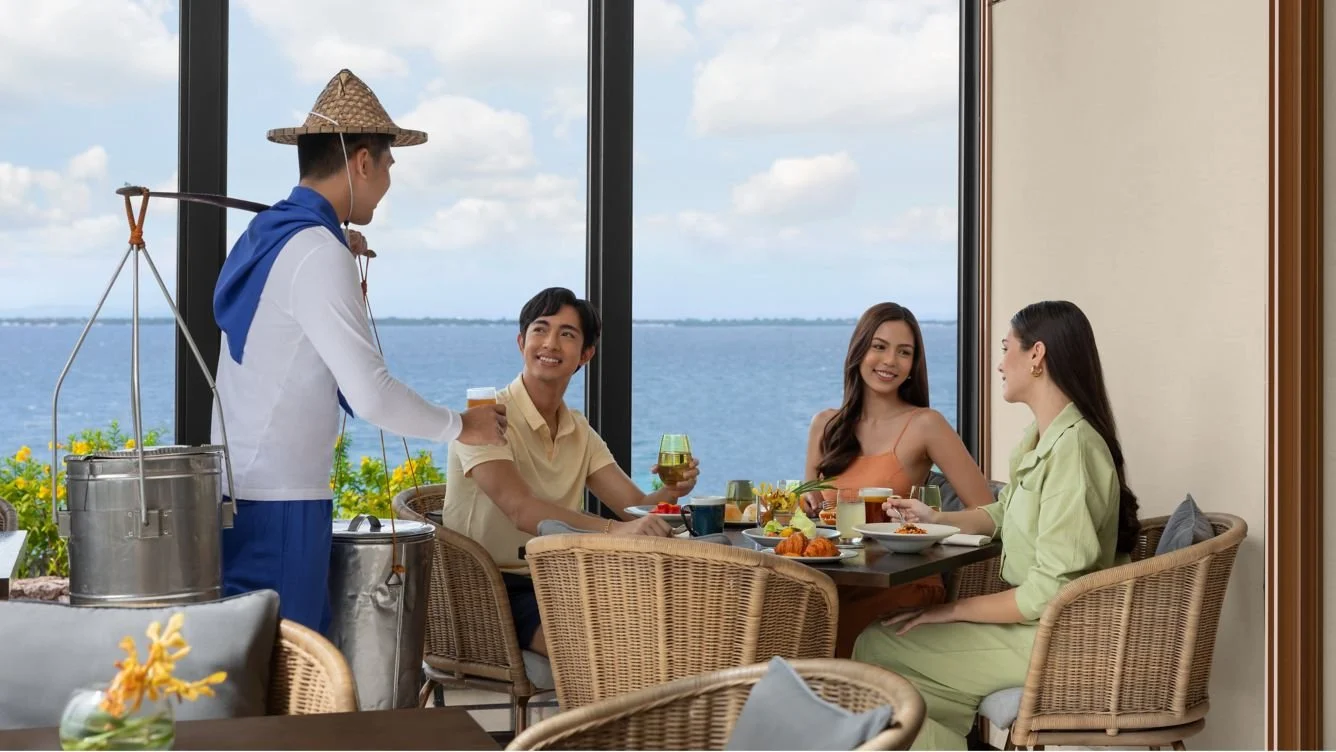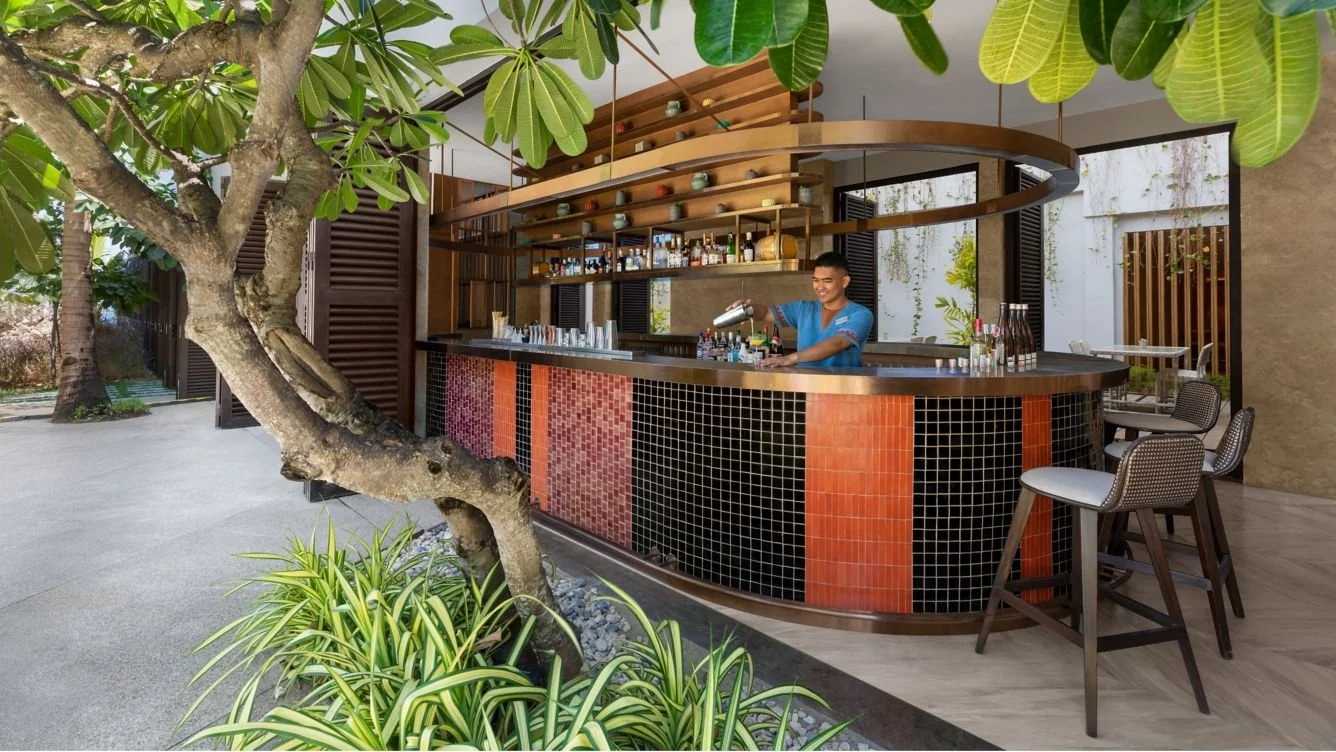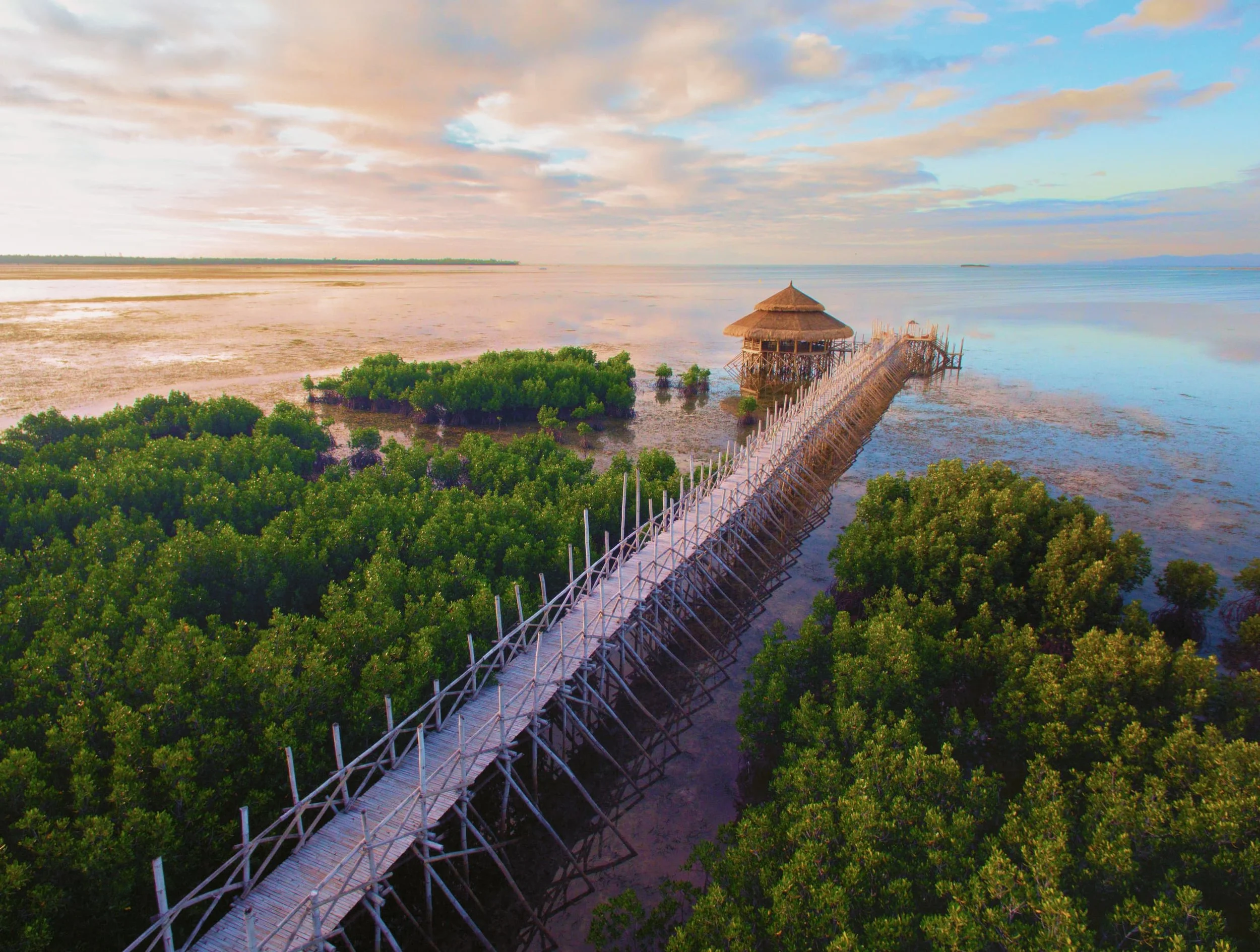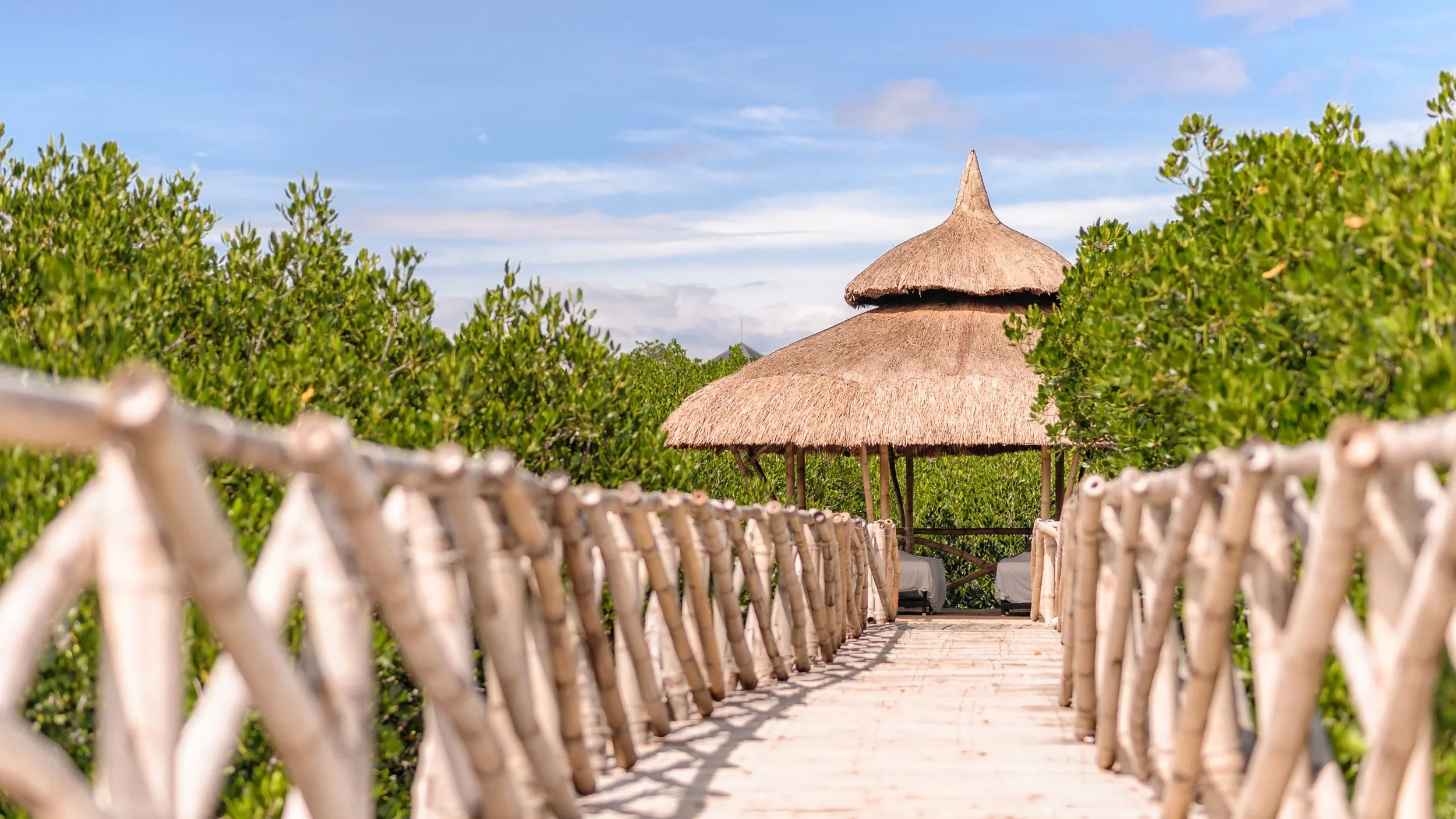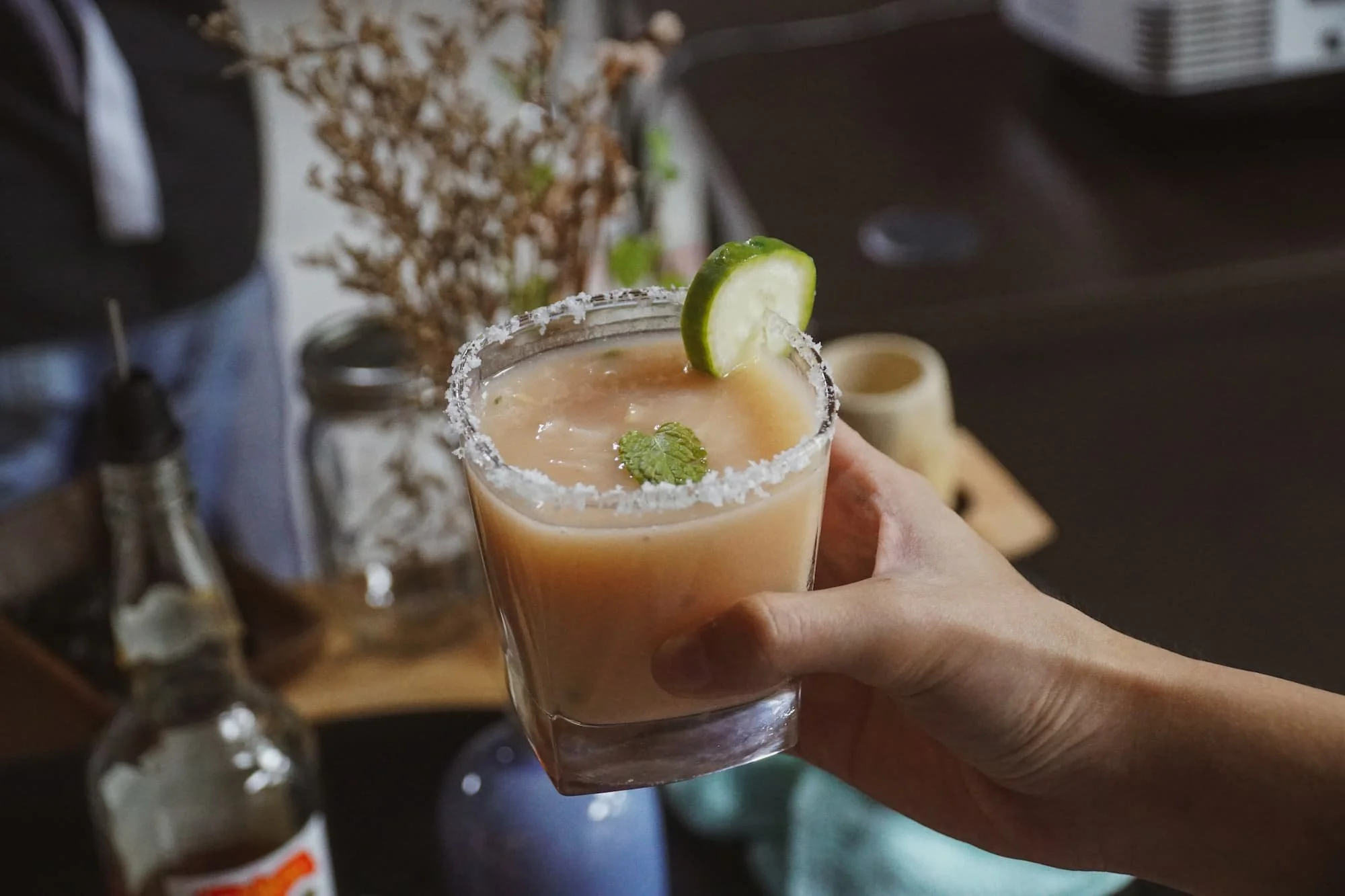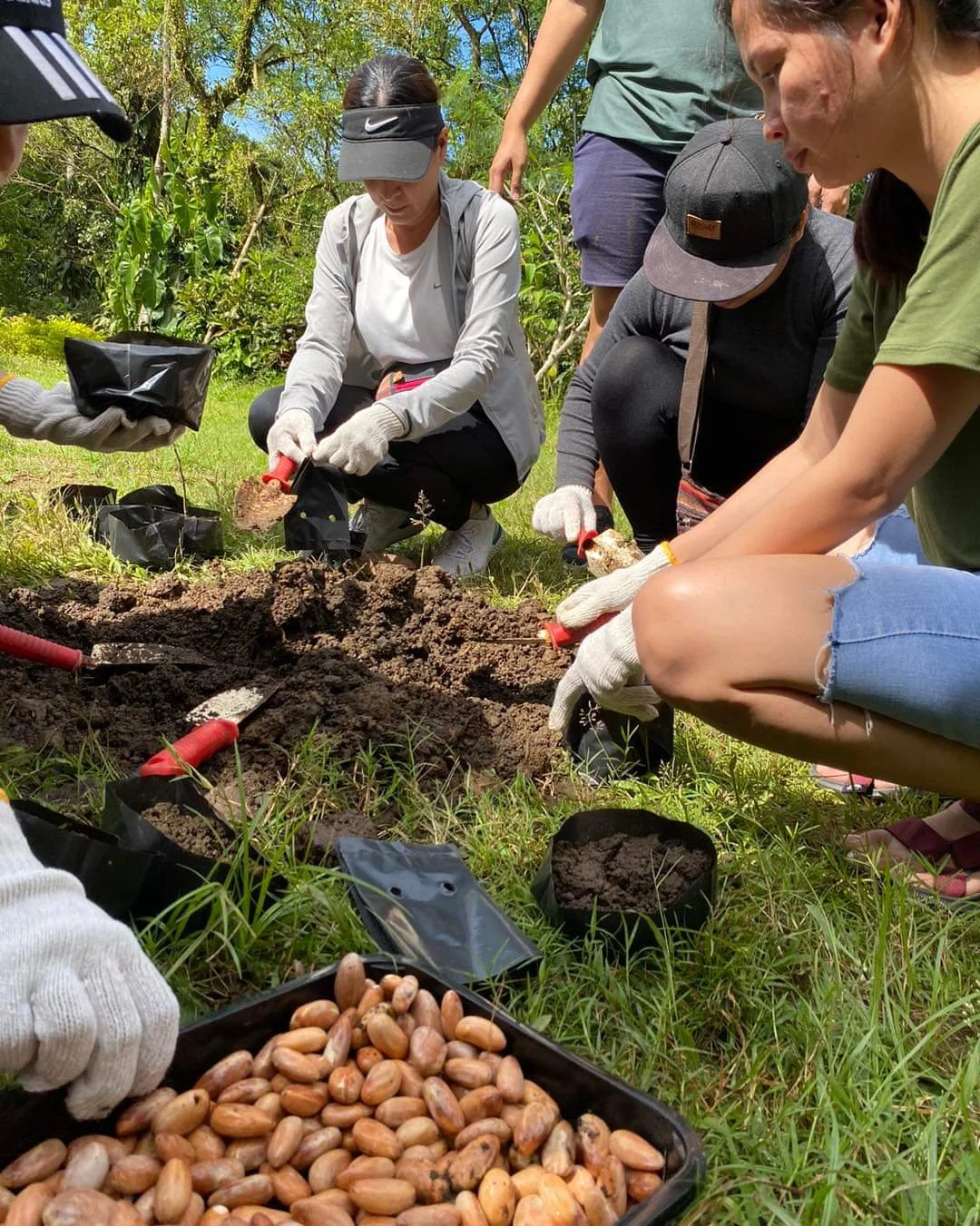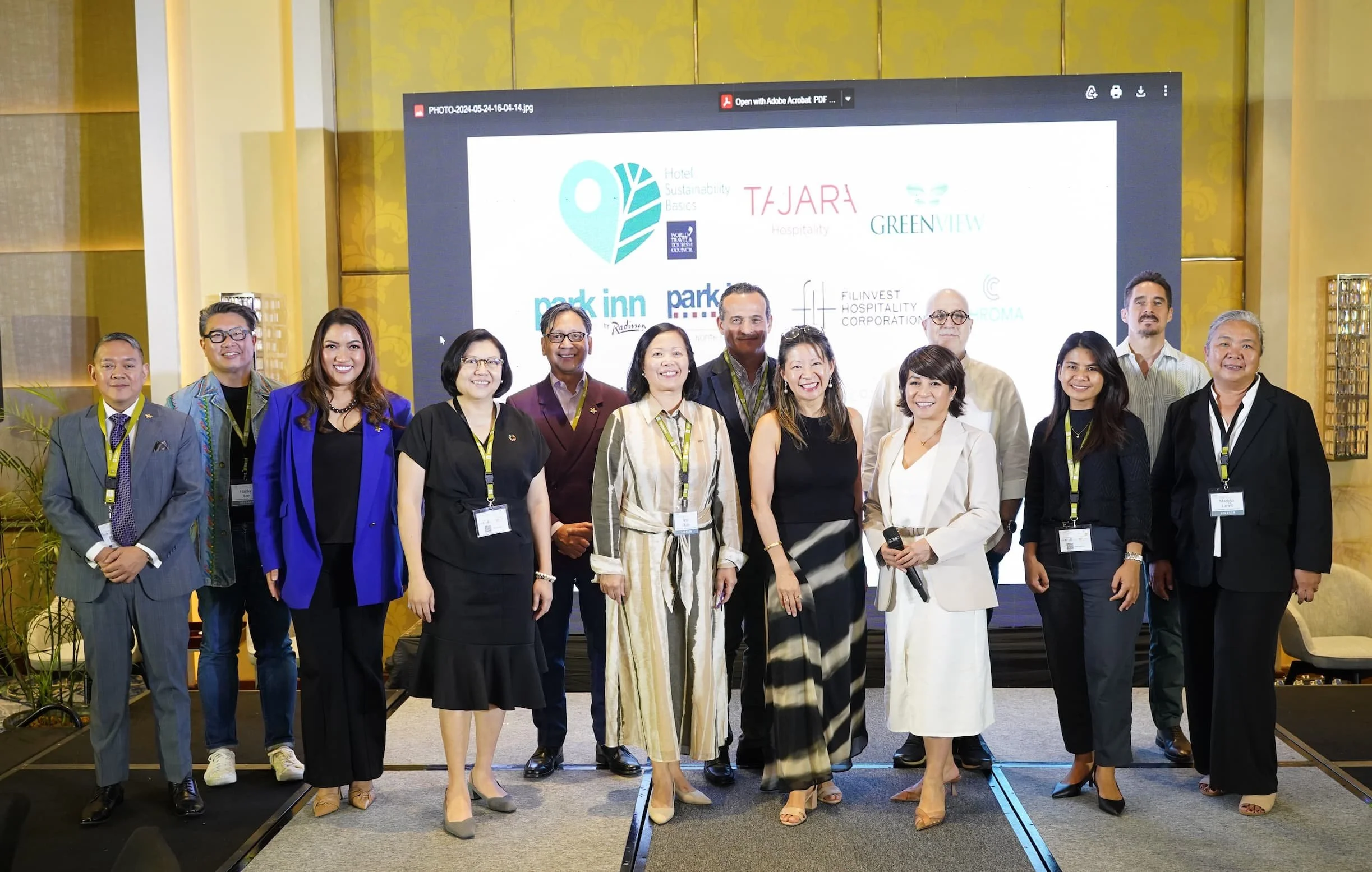The Future of Hospitality: Lessons from Asia’s Next-Gen Sustainability Leaders
Photo by: Oceanica Resort Panglao (formerly South Palms Resort Panglao)
One of the notable topics at the "Philippine Hospitality on Sustainable Tourism" (PhilHOST) conference held on May 24, 2024 was "The Next Generation of Sustainability Leaders on the Future of Hospitality." This panel provided a platform for industry innovators to share their forward-thinking strategies, setting a powerful vision for what the tourism sector can aim to accomplish.
Esteemed speakers such as Rafael Dionisio, Co-founder of MAD (Make A Difference) Travel; Samantha Manigsaca, AVP for Hospitality and Director of AppleOne Properties, Inc.; and Architect Mar Adonis Uy, Project Director of Oceanica Resort Panglao (formerly South Palms Resort Panglao), presented compelling insights into community-based tourism, waste management, and agro-tourism—a form of tourism that involves agriculturally based activities.
This article captures the key takeaways from the panel, showcasing how these trailblazers are shaping a more sustainable future for the hospitality industry.
From left: Rafael Dionisio - MAD Travel’s Co-Founder, Eric Ricaurte – Greenview’s Founder and CEO | PhilHOST Co-organizer, Ar. Mar Adonis Uy - South Palms Resort Panglao’s Project Director, Samantha Manigsaca - AppleOne Group’s AVP for Hospitality, and Cyndy Tan Jarabata – TAJARA Hospitality’s CEO and PhilHOST organizer
Community-Based Tourism and Regenerative Travel: An Immersive and Sustainable Model
Rafael Dionisio of MAD Travel discussed the importance of community-based tourism in environmental conservation and valuing indigenous knowledge and local communities. His organization collaborates with indigenous tribes, farmers, and fishermen to offer visitors an immersive, transformative experience.
One of their organized tours in Zambales is called Feast in the Forest, where elder Aetas (indigenous people) prepare local dishes using traditional bamboo cooking methods. In this community, culinary practices are greatly influenced by foraging from the natural environment.
Photos by: MAD Travel
Through these activities, travelers learn about forest conservation and gain a deep appreciation for the Aetas' way of life, resilience, and profound connection to nature.
"You learn, have fun, help in the process, and hopefully leave things better than you found them," said Dionisio.
MAD Travel's initiatives extend to reforestation and agroforestry in Luzon, where projects like planting purple yam have led to both environmental benefits and community prosperity. The project catalyzed the production of purple yam chips, creating a sustainable income stream for locals.
"A lot of youth want to help. You just have to give them that platform to engage in regenerative practices," he noted.
As more trees grew, this initiative also brought honeybees back to the area, resulting in the sustainable harvesting of forest honey during the COVID-19 pandemic.
Photos by: MAD Travel
Highlighting Long-term Economic Viability
Dionisio also mentioned the cultivation of 20,000 cashew trees on community land, forecasting an annual revenue of 40 million pesos (687,000 US dollars) from cashew nuts alone. "You'll also be a tourist spot for cashew products," he highlighted, demonstrating the economic and tourism potential intertwined with sustainable practices.
The economic uplift from these projects doesn't just offer a temporary boost; it contributes to long-term community welfare and creates a sustainable financial model that supports generations.
"If you heal the environment, it's also good for your tourism business," he asserted.
Photo by: MAD Travel
Farm-to-Table: Integrating Agro-Tourism
Uy elaborated on their farm-to-table concept, highlighting South Farm, a development near South Palms Resort. This initiative capitalizes on the growing interest in agrotourism, educating visitors about sustainable farming practices.
"South Farm opened during the pandemic as a response to displaced employees," Uy explained.
"Instead of laying off staff, we engaged them in farming and weaving, which are integral to Boholano culture. Their livelihoods were sustained, and now it's a beautiful place to visit."
He pointed out that this project not only educates people but also preserves local traditions and sustains the community economically.
Photos by: South Farm
Architecting a Sustainable Future
Uy also discussed the evolving landscape of tourism with an increasing focus on sustainability, emphasizing the rising conscientiousness of modern travelers about their carbon footprint.
His strategy for development in Panglao is firmly rooted in environmental sensitivity, using local materials like bamboo and limestone to reduce transport costs and enhance cultural sustainability.
"Bamboo is an extremely sustainable material—easy to grow, easy to source, and effective in reducing our carbon footprint," Uy explained. He further highlighted the sustainability and durability of limestone, abundant in Bohol, as a key construction resource.
Photo by: Vhince Chiu | Oceanica Resort - Formerly South Palms Resort Bohol
>> Read about how this designer redefined luxury by using bamboo as a sustainable construction material.
Thoughtful planning and design are vital to Uy's strategy, encompassing low-rise developments with ample green spaces to respect the land and minimize environmental impact.
He elaborated on a circular mini-economy in Bohol, sustained by raising livestock and converting livestock waste into fertilizers. These fertilizers are subsequently distributed in Mindanao, embodying a regenerative approach that prioritizes environmental preservation. "It's about being regenerative and ensuring that waste doesn't harm the environment," he emphasized.
Integrating Sustainability with Economic Growth
Manigsaca emphasized that sustainability is more than just about environmental concern; it interweaves with economic prosperity and community development.
At properties like the Sheraton Cebu Mactan Resort, initiatives extend beyond typical green practices to include creating decent job opportunities and promoting local economic growth.
Their projects start with a community-centric approach, ensuring that development brings tangible benefits to the local population. They also organize coastal cleanups and partner with local government units to raise awareness among local communities.
Photos by: Sheraton Cebu Mactan Resort
Addressing the Tourism Boom
Uy elaborated on the rapid growth of tourism in Bohol and the pressures it brings. "In 2022, we had around 500,000 inbound visitors. In 2023, that number doubled to about a million. We now have five to seven flights to and from Korea daily," he revealed.
"Action needs to be taken to accommodate this influx of visitors. By the end of the year, we might hit 2 million, and in the next five years, potentially 4 million." Uy stressed the importance of sustainable development to manage this growth responsibly.
Born and raised in Bohol, Uy expressed both concern and optimism. "Seeing such rapid change is terrifying but also presents immense potential. We want sustainability to become the norm and change how we think about tourism," he emphasized. "I'm so glad people are becoming more aware of this need for sustainable practices."
Photos by: North Zen Villas, Bohol
The Impact of Coral Health on Seafood Supply
Dionisio's analysis vividly illustrated how crucial coral reefs are to seafood supplies and, by extension, local economies. Citing data from the Smithsonian Museum, he noted that a healthy coral reef can produce 1,000 kilos of seafood annually.
"Manila Bay, if clean, could produce 2.9 million kilos of seafood annually," he highlighted. "Plastic is a major threat—if it lands on coral, there's an 89% chance the coral will get sick. It's almost a surefire way to kill your food supply at your fish farm."
Emphasizing the pressing need for preventive measures, Dionisio added, "Initiatives like reducing plastic bottles go a long way. We're shooting ourselves in the foot by destroying our coral reef system, which is crucial for producing fish."
Uy echoed the sentiment that prevention is more effective than reactive cleanups. "We can't do cleanups forever," he stated firmly.
"Sustainability starts at any level—it begins with us, with large business owners, and at the national level. It's about raising awareness and making cleanups less necessary over time," Uy concluded.
Immersive Education and Simplified Sustainability
Dionisio emphasized the importance of making sustainability simple and integrating it into everyday operations and guest experiences. He also highlighted their framework which focuses on people, planet, profit, and the personal well-being of guests.
"It could be as simple as saving seeds from your kitchens," Dionisio explained.
This initiative is relevant to them because they are trying to reforest 3,000 hectares in one of the tourism sites in Luzon.
"It's a lot of trees—3 million trees. We went to the Department of Agriculture and ended up on a six-month waitlist for seeds. But every hotel and home had the vegetables and fruit seeds we needed."
So they came up with a program called 'Tipsy with Sustainability'—a cocktail-making class using fruits whose seeds they needed for reforestation.
Photos by: MAD Travel
His innovative approach to educating people about sustainability through tourism reveals a powerful method for instilling sustainable habits.
"Tourism is the best way to teach people because whatever you show them while they are on vacation, they don't think it's school. They think it's a vacation. You have the opportunity, but also the responsibility, to educate people while they are there."
- Rafael Dionisio, Co-founder, MAD (Make A Difference) Travel
He believes that it is easiest to convert someone to a sustainable lifestyle while on a trip because they are learning while having a good time. His travel programs not only help address immediate needs, like reforestation efforts, but also bring the message home with visitors, potentially influencing their lifestyles long after the end of their vacation.
"I urge you all to really start thinking about these things because you have the best avenue to educate. Nobody listens to me in a classroom when I lecture, but when I'm on a trip, they all eat it up."
Dionisio's parting message encapsulated the essence of the discussion: the responsibility of the hospitality industry to promote awareness and understanding of sustainability among guests.
"People only take care of what they understand. We have a duty to make people understand while they are spending time with us," he said.
PhilHOST 2024 Highlights Sustainable Practices in Hospitality
PhilHOST 2024, held at The Ascott Bonifacio Global City, brought together hospitality experts from top developers, regional and boutique hotel owners, global and local operators, solutions providers, and sustainability experts to discuss best practices, challenges, and opportunities in sustainable hospitality.
Under the theme ‘Sustainability in Action,’ the event featured workshops and panel discussions on food waste solutions, destination stewardship, green certifications, and the rise of eco-conscious travelers. A significant highlight was the launch of the World Travel & Tourism Council’s (WTTC) Hotel Sustainability Basics in the Philippines, with hotel owners pledging to meet 12 sustainability criteria to enhance their practices.
Liz Ortiguera, WTTC Managing Director Asia-Pacific and Senior Advisor to the CEO, emphasized, “This launch and pledge ensure no hotel is left behind. It is a program for the industry by the industry, aiming to elevate standards and practices universally and usher the industry towards more sustainable practices.”
Cyndy Tan Jarabata, CEO of TAJARA Hospitality and PhilHOST organizer, remarked, "The event is a call to take action and not just dwell on mother statements on sustainability. It is time to do the work now to ensure a more resilient future for the industry." She also introduced ENVision, a case competition for high school and college students to propose innovative sustainability solutions, emphasizing that this year, nearly 150 students across the country are working on food waste solutions.
Eric Ricaurte, CEO of Greenview and co-organizer of PhilHOST, stated, “It can be daunting for individual hotels to pursue sustainability, understand related criteria, and seek resources. The WTTC Hotel Sustainability Basics is a powerful tool for this endeavor.”
On stage: representatives of the hotels that have committed to pledge and join the Sustainability basic practices in the Philippines led by Liz Ortiguera, WTTC’s Managing Director for Asia Pacific


